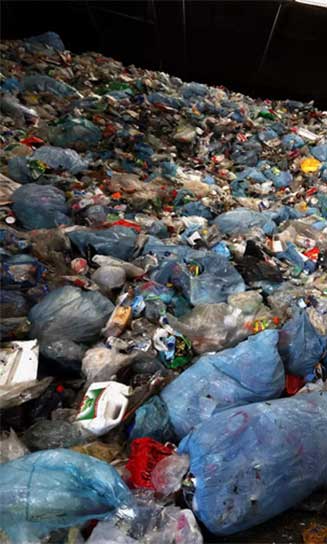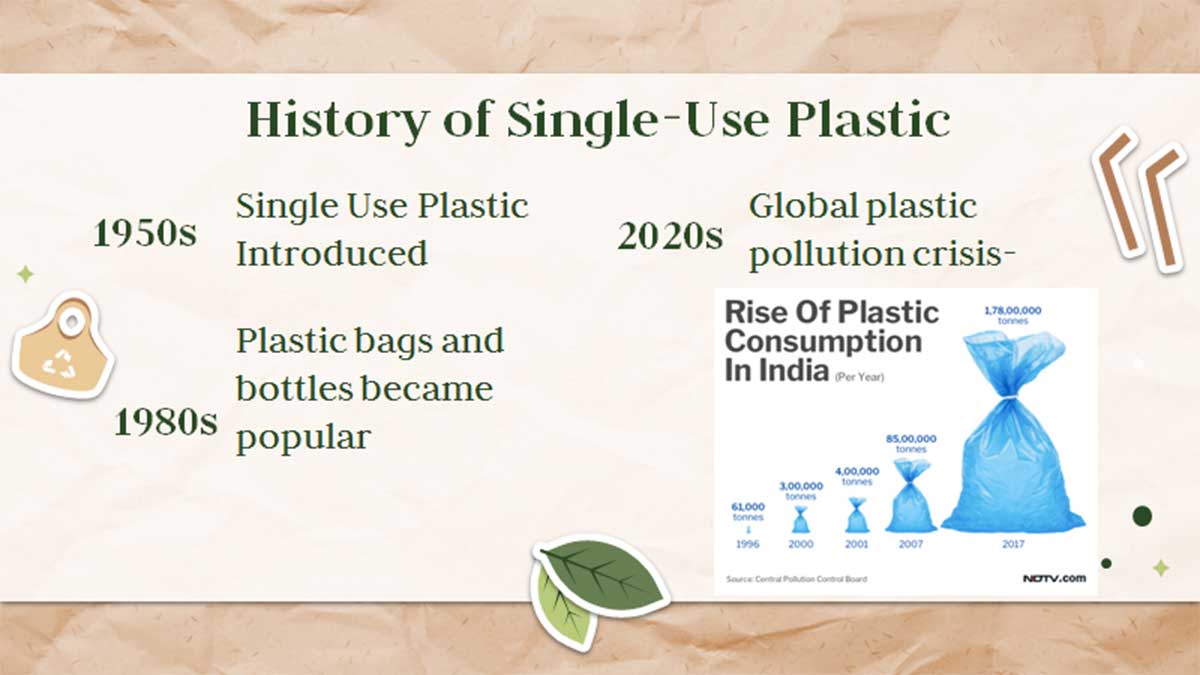Polythene Bags
The Biggest Plastic Waste Pollution
Ban Single Use Plastic: A Step Towards Sustainability
India Becomes
World's Top Plastic Polluter
India has become the world’s top plastic polluter, releasing 9.3 million tonnes annually, accounting for one-fifth of global emissions. The study in Nature reveals that India’s waste generation rate is likely underestimated, with discrepancies in collection figures. This data is crucial for the upcoming Global Plastics Treaty.

What You Can Do

Use Cloth Bags

Use Steel Bottles

Never Use Polythene

Ban Single Use Plastic

Use of Polythene Bags Banned from July 1, 2022
India banned the manufacture, distribution, stocking, sale and use of selected 19 single-use plastic items (including polythene bags) with effect from July 1, 2022.
India banned single-use plastic bags that are less than 120 microns thick on July 1, 2022. The ban also prohibits the sale of non-woven plastic bags that are less than 60 grams per square meter (GSM).
How did the ban come about?
• The Ministry of Environment, Forest and Climate Change (MOEFCC) announced the ban on August 12, 2021.
• The ban was part of the Plastic Waste Management Amendment Rules, 2021.
• The ban was intended to reduce the use of single-use plastics that litter and have low utility.
Why is the ban failing everywhere?
Read the article. We are in the process of building up more material.
Why is the manufacturing not stopped in India?
The manufacturing of banned polythene bags in India continues despite the ban due to poor enforcement by authorities, lack of readily available and affordable alternatives, political resistance in some states, and the significant economic impact on the plastic industry, leading to job losses if a strict ban is implemented; making it difficult to completely stop production at the ground level.
Key reasons for the continued production of banned polythene bags:
Weak enforcement: Many state governments struggle to effectively implement the ban due to inadequate monitoring and penalties for violators.
Unbranded items: It’s difficult to identify and stop the production of unbranded, thin polythene bags that fall under the banned category.
Lack of viable alternatives: While paper bags are often suggested as replacements, they can be more expensive and less convenient for consumers, leading to continued reliance on plastic bags.
Economic concerns: The plastic industry employs a large workforce, and a complete ban could lead to significant job losses, causing resistance from manufacturers and political pressure.
Consumer behavior: Some consumers may still prefer plastic bags due to their low cost and convenience, even if they are aware of the environmental impact.
Why only polythene bags are banned not other packaging material?
Polythene bags are often specifically banned because they are considered one of the most readily dispersed and problematic forms of plastic waste, readily accumulating in the environment due to their lightweight nature, slow decomposition rate, and tendency to clog waterways, making them a significant threat to wildlife; compared to other plastic packaging which may be designed for more controlled use and disposal, or have higher recycling rates.
Key reasons why polythene bags are targeted for bans:
High environmental impact: They are often single-use, easily blown by wind, and readily enter natural ecosystems like rivers and oceans, causing harm to marine life when ingested.
Low recycling rate: Due to their thin nature and potential contamination with other materials, plastic bags are difficult to recycle effectively.
Visual pollution: Accumulating in landscapes, creating a visible litter problem.
However, it’s important to note that:
Growing trend to ban other plastics: Many regions are expanding their restrictions to include other single-use plastic items like straws, cutlery, and certain food packaging due to concerns about plastic pollution overall.
Focus on design and responsible use: The focus is shifting towards promoting reusable alternatives and designing plastic packaging that is more easily recycled or biodegradable.
What We Do
Our Services

Manufacture Cloth Bags
Proin iaculisin duieat liberoy tristiqing fermentum Mamolestiee viverraiy and bero, quiss convallisest

Anti Plastic Campaign
Proin iaculisin duieat liberoy tristiqing fermentum Mamolestiee viverraiy and bero, quiss convallisest

Women Employment
Proin iaculisin duieat liberoy tristiqing fermentum Mamolestiee viverraiy and bero, quiss convallisest

Restrict Polythene Bags
Proin iaculisin duieat liberoy tristiqing fermentum Mamolestiee viverraiy and bero, quiss convallisest

Sell Cloth Bags
Proin iaculisin duieat liberoy tristiqing fermentum Mamolestiee viverraiy and bero, quiss convallisest

Awaken People Around
Proin iaculisin duieat liberoy tristiqing fermentum Mamolestiee viverraiy and bero, quiss convallisest
Why Choose Us
Eternal Energy Foundation is keen on replacing all polythene bags in Noida’s markets with Cloth bags. We are targeting over 1 lac bags production each month. Create Employment for over 10,000 women.

5 Star Ratings

Team Members

Completed Projects

